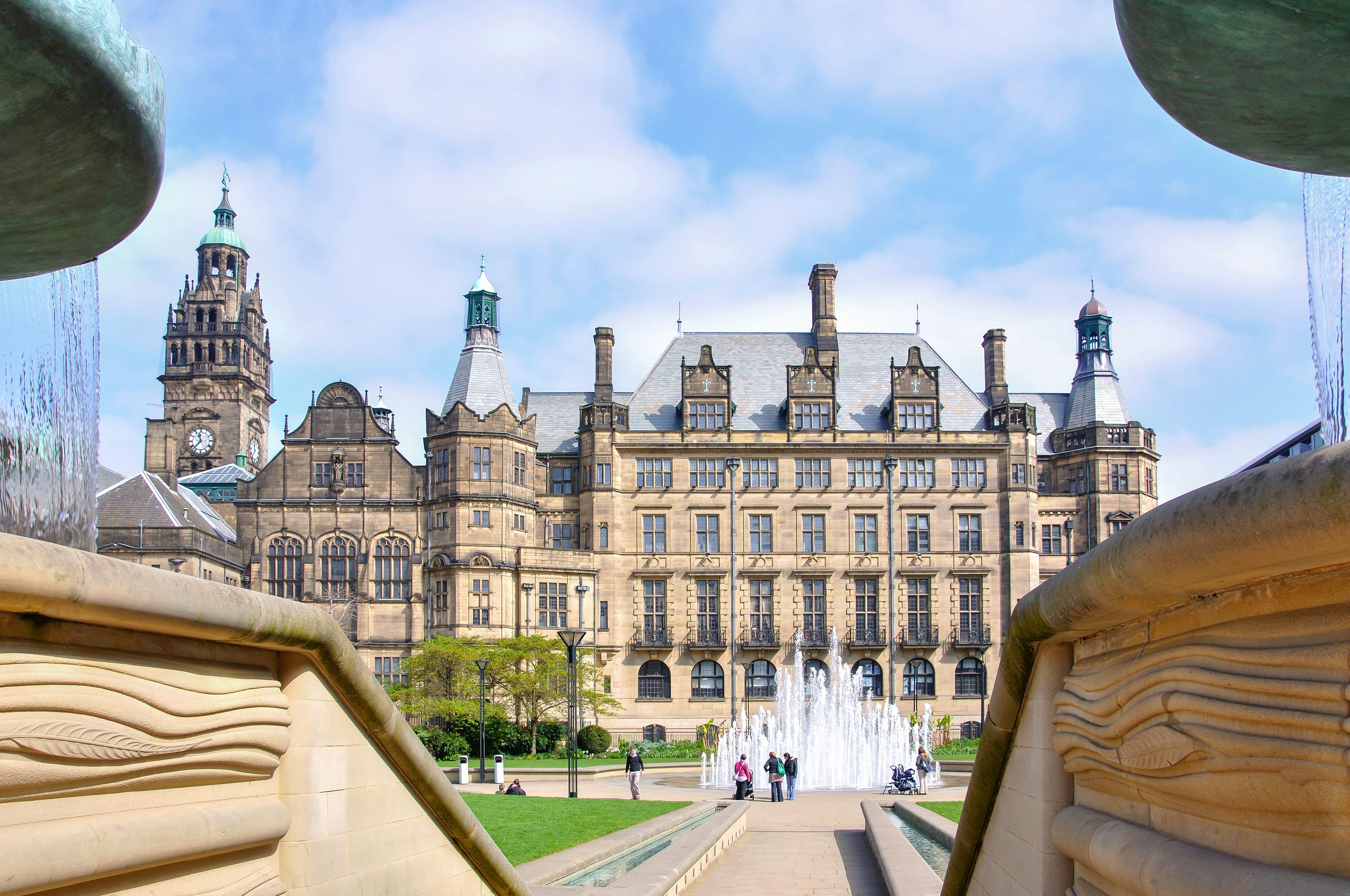
Exquisite houses, the beauty of Nature, and how to get the most from your life, straight to your inbox.
You are now subscribed
Your newsletter sign-up was successful
Well into my adult life, I’d have said I was a city person. Not only that — I used to believe that the bigger the city, the better it was. I spent my early twenties moving to progressively larger urban areas, like a hermit crab trading up in shells.
When I reached London, aged 26, it represented the sum of my ambitions and the fulfilment of a lifelong dream. I loved living in Camberwell with my best friend, working out of Tate Modern, going to gigs mid-week, and exploring the city on weekends.
I couldn’t imagine ever wanting to live anywhere else. So I was as surprised as anyone to find myself, just five years later, happily settled in Norwich: population 144,000.
I moved there in 2021 to do a master’s degree, knowing no one and never having even visited. Yet the easy lifestyle, ready access to nature and — it must be said — lower cost of living unexpectedly won me over.
I am not alone in having become disillusioned by city life. My move was in part precipitated by the Covid-19 pandemic, and a desire for a new challenge and change of scene. According to the Centre for Cities, nearly 200,000 people left London during 2020-21 — 88,000 more than in a normal year, and notably without children.
The more ‘typical story’, the Centre for Cities’ analyst Maurice Lange tells me, is that people in their thirties leave London, to start or grow their families. But whether they want to leave or feel forced out, by the cost and challenges of day-to-day life, is difficult to say.
‘It’s impossible to disentangle people’s preferences from the pressures that they’re under,’ says Maurice — though it is perhaps telling that most of those London-leavers don’t move far away.
Exquisite houses, the beauty of Nature, and how to get the most from your life, straight to your inbox.
'The need for a change was one of the big things that came up… to just keep you moving, keep you young and excited'

A small boat sails in one of the many channels of the Norfolk Broads
Particularly in my first year in Norwich, the proximity to London felt reassuring as I built my new life. Ex-Wallpaper magazine editor Alex Bagner found the same in moving with her young family to Deal, Kent, from Hackney in the summer of 2021.
As a born-and-bred Londoner, leaving the city for the coastal town tested Bagner's identity: ‘I had a moment, when I did actually move, of “Oh my god — what have I done?”’ she admits.
But Alex also understood the possibilities of a fresh start, having written a book, How To Leave London, for which she interviewed 20 people about their reasons for departing the city. ‘The need for a change was one of the big things that came up… to just keep you moving, keep you young and excited,’ Bagner says.
A post shared by The Blue Pelican (@thebluepelicandeal)
A photo posted by on
Having been initially reluctant to let go of London, Deal is now home ‘100% of the time,’ says Bagner, as evidenced by her setting up (along with her husband Christopher Hicks) two businesses in the seaside town: The Rose pub and The Blue Pelican restaurant.
‘The reason that we did it here, rather than in London, was feeling that you got a bit more support from the community,’ Bagner says, pointing to the capital’s cut-throat competition and pressure to always be innovating. ‘You still have to keep up your creativity here — but somehow it feels a little less intimidating.’
Bagner's experience in Deal tallies with my own in Norwich. I had feared that leaving London would shrink my life, make it quieter or more limited — and it is, in some ways. But in others, it has been meaningfully enlarged.
Chief among them is the fabled ‘quality of life’. I’d had no hope of ever escaping renting when I was committed to living in big cities. Now I own my flat — I have pets, and a dedicated home office; I know nearly all my neighbours, and every window looks out onto greenery.
Not everyone will see that as a good enough trade-off for everything that London has to offer; for me, the mental-health benefits of being able to live by myself and feel secure in my home have been manifold.
But it is not just the lower cost of living that made me want to remain in Norwich: the place itself has taken my life in unexpected but rewarding directions.

Plenty of homes on Norwich's Elm Hill date back to the Tudor period
For instance, I’ve developed an interest in medieval history — inspired by the anchoress Julian of Norwich, who holed herself up in a cell by the River Wensum not far from my flat — and learned enough about the city’s past to be able to take out-of-town visitors on a passable tour. I have discovered new walking routes in Norwich, and been slowly getting to know Norfolk’s many villages, beaches and broads.
And, over time, I have made great friends – many of whom live nearby, and are more often than not up for a last-minute dinner invite or trip to the countryside.
My friend Alim Kheraj, also a journalist and author of Queer London, has found the same increase in spontaneity since moving to Sheffield. ‘Here, someone can text you and say “Fancy doing this?”, and you can say yes,’ he says. ‘I feel like that was something that was really missing in my life in London.’
Having explored ‘a number’ of potential new homes, including Hastings and Manchester, Kheraj was inspired to move to Sheffield after visiting a friend there. ‘I really loved the way that you could be in the countryside so quickly, and yet there was still a city close by,’ he says.
Having weathered the lockdown in a London sharehouse, with no outdoor space, Sheffield’s cheaper rent was also a draw. After landing an affordable two-bedroom flat, Kheraj relocated north. ‘And honestly, I haven’t ever really looked back,’ he says.
The knowledge that he had a friendship group ready to slot into eased the transition — it ‘sort of felt like cheating’, Kheraj admits — but other aspects of the move have been a pleasant surprise.
Sheffield’s nightlife is more limited than London’s, but, Kheraj says, he was at a stage of life ‘where I wasn’t really looking for any of that’. These days, having the Peak District on his doorstep holds more appeal.
‘My lifestyle has changed: I get out into the countryside, I go walking… I’m able to do and see and experience things that I just never would have thought I’d do.’ The other day, enthuses Kheraj, he went to a sheepdog trials: ‘It was amazing.’

Sheffield's Town Hall and Peace Gardens
'The other day, enthuses Kheraj, he went to a sheepdog trials: "It was amazing."'
There are drawbacks. Though Sheffield does have a queer scene (Kheraj namechecks the Gut Level event space), it is undeniably smaller than in big cities. ‘It is harder to meet other LGBTQ people — they’re just not visible,’ he says.
People from ethnic minorities may likewise encounter difficulties or discrimination outside of multicultural urban centres. One of Bagner’s case studies for her book was an Indian man who moved from London to Norfolk: ‘He really struggled,’ she says.
But — as much as he believes Sheffield would benefit from its own Pride, or even just another gay bar — Kheraj has never regretted his move. His life in Sheffield feels stable in a way it didn’t in London; there, he says, ‘I always felt transient, like I’d be moving on at some point.’
More binding than cheap rent is community. The thriving arts scene and its ‘DIY spirit’ has already pushed Kheraj in novel, productive ways. ‘People are doing interesting and exciting things… and that’s been really invigorating, creatively.’
It speaks to the importance of attitude, self-awareness and expectations in making a move a success. It can take time ‘to settle in and find your people,’ says Bagner – her estimate is two years, and I would agree. Some don’t last that long before returning to London.
That is not necessarily a failure. As Bagner says, life has chapters: ‘Having made the move, it doesn’t have to be forever.’
As content as I am to have found myself in Norwich now, I know that I want to live elsewhere in my lifetime. But, whenever that happens, and wherever it may take me, I can trust that my past experience of moving will serve me well.
We may fret about where to build our lives and put down roots, but how you feel about leaving London might be more determinative than where you decide to go. If you only ever see your new home as a consolation prize — somewhere to bide your time until the big city becomes an easier option — it may never lose that second-rate sheen, and you risk missing what it has to offer.
If, on the other hand, you can approach your move with enthusiasm, commitment and an open mind, you might be surprised by what you find out – not least about yourself.
Who might you be, beyond the M25?
Elle Hunt is a freelance writer, working mostly for The Guardian. She has also been published by The New York Times, Kinfolk, New Scientist, Slate, Men's Health, Vogue, New Statesman, Grazia and Stylist, among others.

